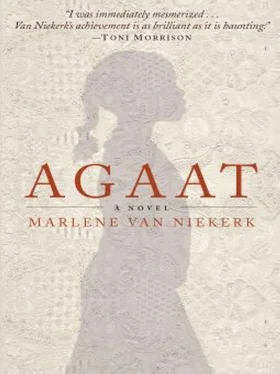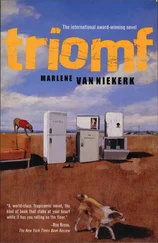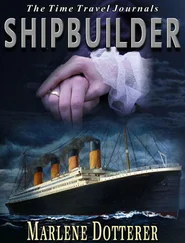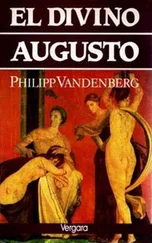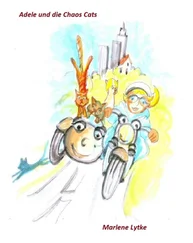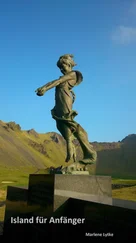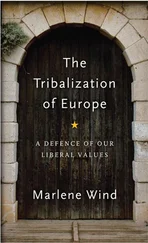Did I imagine that I heard our whetting-song? On the in-breath?
Hey ho, hitch up the wagon.
Yes, Agaat, the wheat stands white in the fields. The front-cutter mows a swathe through the blades of wheat. Over the contours the wagon rocks with its load of golden sheaves. My bed with shiny railings, filled with Kleintrou and filled with Daeraad.
Can I still believe my ears?
Yes, I heard it, the rustling of newspaper, peels falling on a tin surface. The big enamel bowl from Ma’s time, the one with the three red roses in the base, the white one with the black riffled edge around the top, and the spreading black patches where the enamel has gone. No longer suitable for milk, but good enough for blood, for peels. I could discern it through my fissures, the great white stain catching and reflecting the light, a cloud drifting through the room.
Shall I come to rain? Shall I be brought to fruition? Sweet? A sweeter ending than one would have expected after this? How?
A lengthy peeling it was. Hours on end. A slicing, a grating. At long intervals the chunks plashed into bowls of water.
Why is she whetting and peeling here in my room? Why do I see her shadow low down there on the floor? A shadow on her knees? A cloud dripping onto a cloud?
The smell was green and sweet and raw, traces of beans, lazy housewife, of peas, sugarsnow, of cabbage, of carrots, of turnips and radishes, of freshly-pulled fennel bulbs, the whole vegetable garden below the drift, the irrigation water, the loam darkened with barrow-loads of compost.
With the thud of the boer pumpkin on the floorboards I started to understand.
I was supposed to be able to hear the kitchen. In full concert. Pull out all the stops.
Toccata and fugue.
I had to hear and smell what it would be like when I’m gone. The onset of the funeral meal, with how much conviction it would be undertaken. The preparation for the guests, with concentration, with dedication, with virtuoso fingering.
It was supposed to console me. It was supposed to reassure me. I was in the knives, I was in the peels, in the drawers, in the enamel bowls, I was the rich black compost, I was the soil, and nothing would ever grow without me. Nothing, to the end of time, without my having farmed here, and none of the people remaining here and living off the land.
My last meal. That was what she was preparing for me. For the abstemious guest of honour.
Eight o’clock. Will she come and eat it on my behalf?
The table is set. Damask, flowers, wine, candles, silver, crystal, porcelain. Four courses at the foot of my bed.
She removed the plaster from my staring eye, she splinted open the collapsed one, she put drops in both so that I could behold it all.
Here come the dishes now. Here they come one by one. The white porcelain. Here, gliding past, is the large oval platter with the leg of lamb, complete with the knuckle-bone. Garnished with rosemary, blue blooms and all. Fatty rind crisp and brown.
She’d been grazed on bushy scrub for extra taste and flavour, earmarked early on, cleansed with milk and bran, stalked from behind where she was a-dreaming in the clover, and before she knew it, before fear could bane her. .
Ag Agaat, you would have lent a hand there with your butcher’s sleeve! You would have done it clean and fast, with respect for the wool, respect for the membranes.
She flourishes open the napkin in a single sweep, tucks it into the front of her apron, gardenia on her bib.
Forty-three years together on earth.
Her cap tilts forward. For the sake of the invisible congregation.
We’re laughing at them the merest bit, I see, Agaat.
Come Lord Jesus, be our guest, let these thy gifts to us be blessed.
Why do people want to eat when somebody’s died?
When have I seen her eating seated at a table?
In the dining room of old, at the far end of the table, Abba, Father bless this food for our everlasting good, the little silver shovel in the little hand, the little blunt silver fork in the other.
At the kitchen table, early evenings with me, an extra spoon in my hand: Come, another bite. Stories and rhymes to make it go down.
And when the clock struck twelve,
her dish was of enamel made,
her mug of tin,
her knife her fork her spoon
hidden under the kitchen sink.
Here, your things, in case of need,
They have their place as you do now,
You are of another breed.
With nail polish I painted a capital A on the underside of the plate, on the underside of the mug, so that they couldn’t get mixed up with those of the other servants.
She always packed it, her cutlery, even for a picnic, a church bazaar, for the holiday at Witsand, wrapped in a white cloth.
She eats her picnic behind a tree, her bazaar food behind the verger’s garden wall. Behind a closed kitchen door she eats when the house has fallen silent. The trunk of the tree says forbidden , the door says no trespassers . How high the wall is there under the seringas.
I went and peeped through the kitchen window one evening. Her place set with enamel, the long-pronged fork, the old bone-handled knife, the tin mug of water. The blue plate from the warming oven, the pulling-out of the chair, the sitting-down as if to boiled human flesh, the hands to the cap, if it’s settled squarely, the hands to the apron bands, if they’re running at right angles across the shoulders, the measured forkfuls, the steady pace, the spot at the furthest edge of the table where her eyes are fixed when she chews, her mouth shut tight, with scarcely visible movement of the jaws, straight back, straight head, without a sign of gulping, except for the small sip of water afterwards, as if it’s salt water, or bitter water, or blood.
She knew there was somebody, warned me, set down the knife and fork in the plate, folded her hands in her lap, and gazed in front of her, and waited. I was slow to understand, slow to get away from the window, the dogs were jumping up against me. She got up, came and drew the curtain in my face, little tugs, unhurried, as if I weren’t there, as if the only face she had seen was her own reflection in the pane. And later it was Jakkie’s riddle, the solitary dining of his nêne.
Why can’t I look when you’re eating, Gaat?
Because my teeth are so big, Boetie!
Why can’t I see when you’re drinking, Gaat?
Because I milk the kitchen snake into my mug, my child!
Why do you always sit alone?
Because I’m the one in alone!
Why do you draw the curtains?
So that my fork shouldn’t hook the lightning!
Why do you close the door?
So that my knife shouldn’t run away through the door!
What do you eat then, Agaat?
Steamed frog, baked lizard and soup made of the tears of stones!
Stop it, the child has nightmares!
Carry on, because your même must die!
Is it a song? Why does is sound so familiar?
The table is singing at the end of my bed.
The starched sheets are singing.
Death’s divinities.
The lids are removed, the steam arises.
My eye that can’t blink becomes all-seeing. No moth or rust can destroy such a sight.
Agaat carves for herself.
Agaat dishes a plateful. White and green and yellow and red.
My mouth that cannot speak, now epicurean.
Eat me a psalm of pumpkin and sweet potato, the orange and the ochre, dig a pyramid over me, an underground silo, pierce peep-holes for the stars, mill the angles of the moonbeams in the grooves.
Is the right oar in the rowlock, and the left, is it there, is it greased? What about the meat with the shiny fatty rind, has it been wrapped for me in the white muslin? Who gets the knuckle bone? Who delivers the dumplings? Where in heaven’s name to go with the cabbage rissoles? What to do with the baked bat?
Читать дальше
